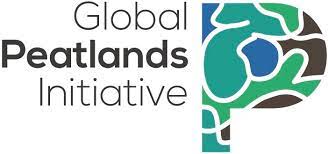
Communicating complex research simply
This event has now finished.
Event details
Research is complex but it doesn’t have to be complicated. In this session, you will learn with two leading communicators of research, including communicating complexity, communicating around controversial topics, and communicating uncertainty. The session will draw on examples from peatlands but researchers from any field are welcome.
About the trainers

Dr Olivia V. Ambrogio is the Assistant Director of the Sharing Science Program at the American Geophysical Union (AGU), where for the past 10 years she’s helped scientists connect with wider audiences. She is a biologist by training who got her Ph.D. studying the sex lives of marine snails. In spite of the surprising allure of this research, she eventually shifted into the field of science communication. In her spare time, she writes and takes nature photos, often frustrating her partner and friends (who just wanted to take a walk) by crouching on the ground to photograph an insect. Follow Olivia on Twitter.
George Hope is Communications Manager at Oxford Net Zero and Greenhouse Gas Removal Hub, based at University of Oxford. A member of the Chartered Institute of Public Relations, his experience is in communications, public engagement, policy engagement, events and programme management. Connect with George on LinkedIn or follow his work on Twitter via Oxford Net Zero and the CO2RE Hub.
In case you missed the event you can catch up here:
About the Global Peatlands Initiative
The Global Peatlands Initiative is an effort by leading experts and institutions formed by 13 founding members at the UNFCCC COP in Marrakech, Morocco in 2016 to save peatlands as the world’s largest terrestrial organic carbon stock and to prevent it being emitted into the atmosphere. The current greenhouse gas emissions from drained or burned peatlands are estimated to amount up to five percent of the global carbon budget — in the range of two billion tonnes CO2 per year.
Partners to the Initiative are working together within their respective areas of expertise to improve the conservation, restoration and sustainable management of peatlands. In this way the Initiative is contributing to several Sustainable Development Goals , including by reducing greenhouse gas emissions, maintaining ecosystem services and securing lives and livelihoods through improved adaptive capacity.
Find out more at: www.globalpeatlands.org
Partners




